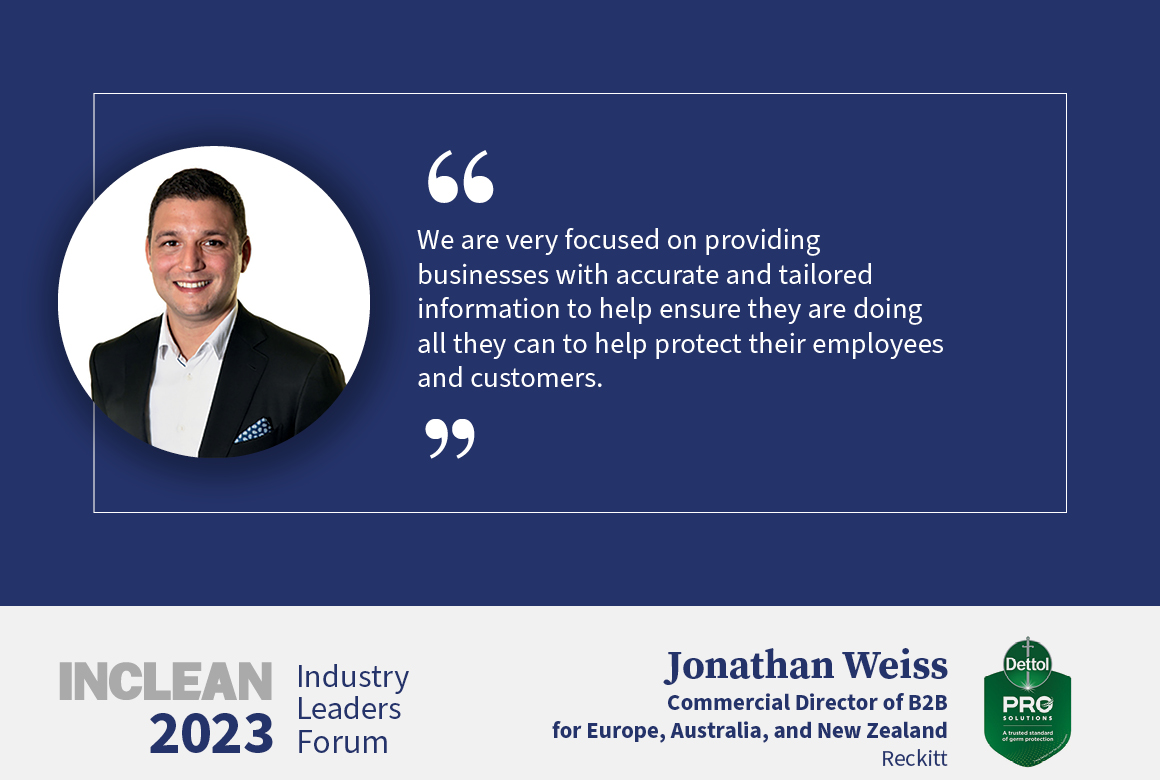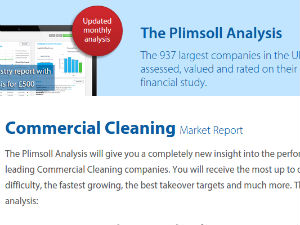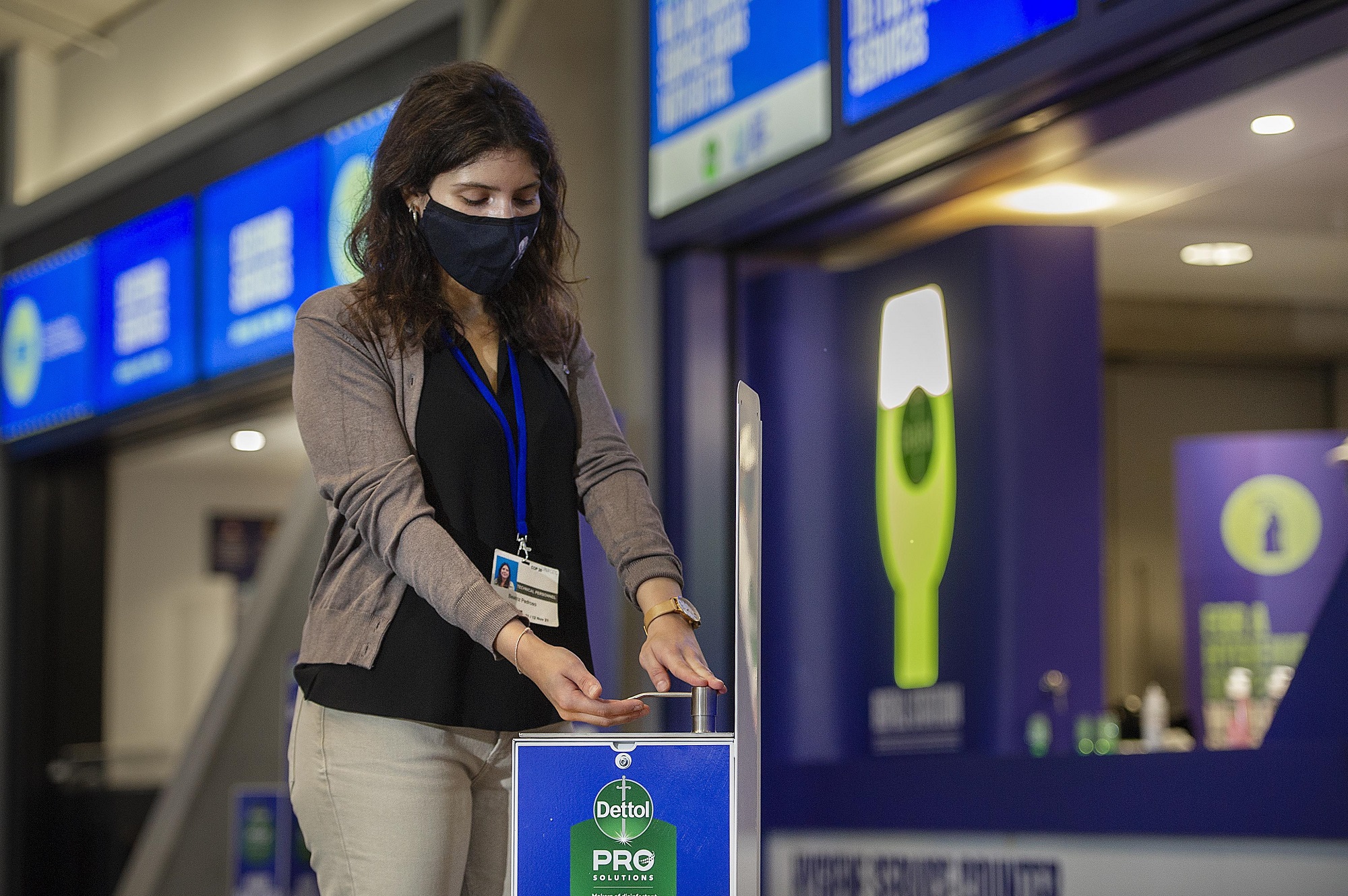
How was 2023 for Dettol? What were the highlights? What were the challenges?
2023 was a great year for Reckitt Pro Solutions and marked another year of double-digit growth for the business. We’ve seen growth across all industries, but we saw particularly strong growth in offices as recovery continues, as well as in industrial and MRO.
A key focus for us in 2023 was to shift from focusing on Covid-based sanitisation initiatives to offering a broader suite of hygiene solutions for businesses that also encompasses the wider Reckitt range of products.
In 2023, we launched our new value proposition, ‘Better Results For Healthy Business’, which is founded on four key pillars: efficacy of product, efficiency of product, sustainability, and health outcomes. We had improved collaboration with our key distribution throughout the year and launched new product innovations, including the BOTANICA by Air Wick Automatic Spray + Refill, which was a finalist in the 2023 INCLEAN Excellence Awards at the ISSA Cleaning & Hygiene Expo.
2023 was also not without its challenges. One of the main challenges that all businesses continue to face as we head into 2024 is cost pressure. Not only that, but we are also facing commodity pressure from the market in terms of production and procurement for our products.
Th other challenge is hygiene complacency. During Covid, everyone was hyper aware of germs in the workplace and implemented a whole raft of cleaning and disinfection measures in an effort to minimise the spread of germs and combat the risk of infection. However, post-vaccination and the re-opening of the world, we have seen significant drop in cleaning and hygiene standards.
Most notably, hand sanitatisation has significantly dropped as a key measure. High touchpoint cleaning, while still very frequent in settings such as healthcare, has also dropped. Both of these measures remain necessary to fight outbreaks and infections and reduce workplace absenteeism.
In response to this hygiene complacency in the workplace, we have launched an education campaign targeted at facility managers, procurement managers, and end users in small to medium sized businesses (SMBs), highlighting the risks that exist in their workplaces and the solutions that we at Dettol Pro Solutions can provide to combat those risks.
What are the company’s main priorities for 2024?
One of the main priorities for us in 2024 is the rollout of a world-first, targeted hygiene campaign for Australian schools, focused on driving hand hygiene behaviour for children.
Launching in partnership with Winc Australia as a B2B distribution program, the initiative not only provides cleaning solutions for the classroom but also educational material for students and teachers that help demonstrate the importance of hand hygiene in engaging ways.
As part of the pilot, we have launched a hybrid learning programme, Dettol Hygiene Quest, which brings together interactive play with story-led learning. Hygiene Quest is a fun, engaging, story-driven teaching curriculum that helps to embed strong, lasting hygiene practices in children aged six to eight.
Hygiene Quest teaches children the importance of hand washing, as well as how to prevent the spread of germs through good personal hygiene habits and behaviours. This curriculum engages students through a combination of animations, educational games, and classroom lessons.
Schools involved in the program will be provided with dispensing solutions suitable for classrooms, and hygiene kits, which include hand sanitiser bottles, disinfectant wipes, and Glen 20 Aerosol Disinfectant Spray, will be distributed to teachers to assist with touchpoint cleaning throughout the day.
Engaging signage will also be placed in key areas to remind kids to wash their hands. Using behavioural science, we have identified three key signage touchpoints that have been proven to increase handwashing: on the back of toilet doors, above urinals, and at the entry of the bathroom.
In fact, one study found that up to 80 per cent of all infectious diseases are transmitted via contaminated hand-to-hand or surface-to-hand contact1. Not only that, but another study also shows that up to 80 per cent of people don’t wash their hands properly when using the toilet and this statistic goes down significantly when they are prompted to use their hands2. This further emphasises why placement of this signage can do a whole lot of good in raising the bar on hygiene for kids!
Another of our top priorities for next year is further strengthening awareness of the entire range of effective, efficient, and sustainable commercial hygiene solutions that Reckitt Pro Solution offers. This includes not only Dettol but other signature Reckitt Brands such as Finish, Harpic, Airwick, Vanish and much more.
Apart from Reckitt Pro Solutions’ offering, another key priority for next year is solidifying Finish Professional’s equity within HORECA (Hotels, Restaurants, Cafes) Industry in particular. In order to develop a long-term relationship with our partners, we would be offering them a one-stop dispenser solution along with installation and required support that they need. There is much more to come on these fronts so stay tuned.
What do you see as the most significant opportunities and challenges in the cleaning industry?
I believe there are several key trends the industry needs to adapt to as we move forward post-Covid. The first is reinforcing standards of clean and hygiene expectations. Post-pandemic, consumers expect clean and hygienic facilities, and as businesses we need to raise the bar and provide those standards. There’s a direct correlation between clean and hygienic facilities and customer experience. In fact, a UK study found that 97% customers wouldn’t return to a restaurant if the restrooms were dirty & lacked a decent standard of hygiene3.Until we implement and maintain those cleaning and hygiene standards, there will also be a greater susceptibility to infection.
Inflation and cost of labour will also continue to be a challenge for us and our customers in 2024. Additionally, the dynamic between working from home and presenteeism in the office will continue to create challenges for the industry this year. Lastly, real action on sustainability is needed by the industry. Product stewardship, the removal of harmful ingredients, the transition away from plastics, innovation to remove CO2 emissions are all necessary measures in 2024 from both a product level and from an organisational level.
Are there any key sustainability commitments/targets Dettol has made for 2024?
At Dettol Pro Solutions, and Reckitt at large, we have an incredibly strong commitment to sustainability. In fact, by 2030 we want 50 per cent of our revenue to be from more sustainable products, and a 65 per cent reduction in our chemical footprint (2030 vs 2020).
By 2025, we are aiming to have 100 per cent of our packaging to be recyclable or reusable. Where we will continue to use plastic in packaging, we will ensure that at least 25 per cent of its content is recycled plastic by 2025, where possible or allowed by regulators. We are also aiming for a 50 per cent reduction in virgin plastic by 2030 (vs 2020), a 50 per cent reduction in product carbon footprint emissions by 2030, and a 30 per cent reduction in water usage in 2025 (vs 2015).
We’re proud as an organisation on the progress we have made so far on these goals. We have already achieved a 66 per cent reduction in greenhouse gas emissions, 94 per cent of our factories are already zero-waste to landf[HB1] ill, and our net revenue from more sustainable products continues to grow and is getting closer and closer to our target.
Do you have a message for the industry?
As an industry, I believe there are two things we need to do and do well. Firstly, we need to educate on the need for higher standards of hygiene and cleaning – supported by a solution offering rather than product offering. Secondly, we need to take a stand on sustainability without comprising on product efficacy.
- www.cdc.gov/cdctv/healthyliving/hygiene/hands-together-hygiene.html (CDC)
- *Sultana, M.; Mohumud, R.A.; Sarker, A.R.; Hossain, S.M. Hand hygiene knowledge and among university students: Evidence from Private Universities of Bangladesh. Risk Manag. Healthc. Policy 2016, 9, 13-20.; Sturgeoner, B.V.; Chapman, B.J.; Powell, D.A. University students’ hand hygiene practice during a gastrointestinal outbreak in residences: What they say they do and what they actually do. J. Environ. Health2009, 72, 24-28.
- https://www.maxxclean.co.uk/brits-wont-return-to-dirty-restaurant/ (YouGov Online Survey)
This article first appeared in INCLEAN magazine.
Comment below to have your say on this story.
If you have a news story or tip-off, get in touch at info@incleanmag.com.au
Sign up to INCLEAN’s newsletter.




